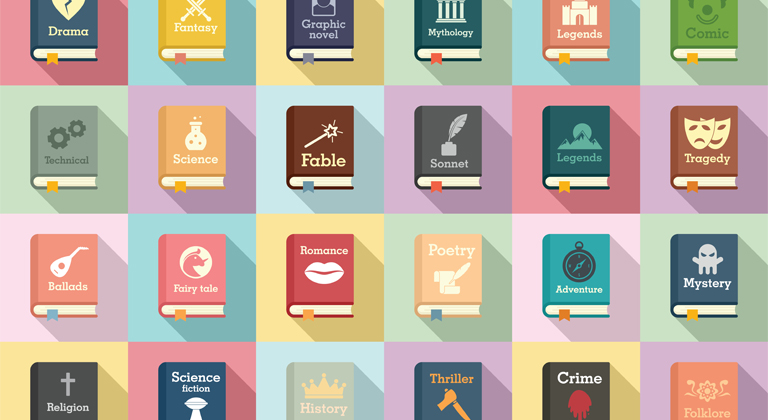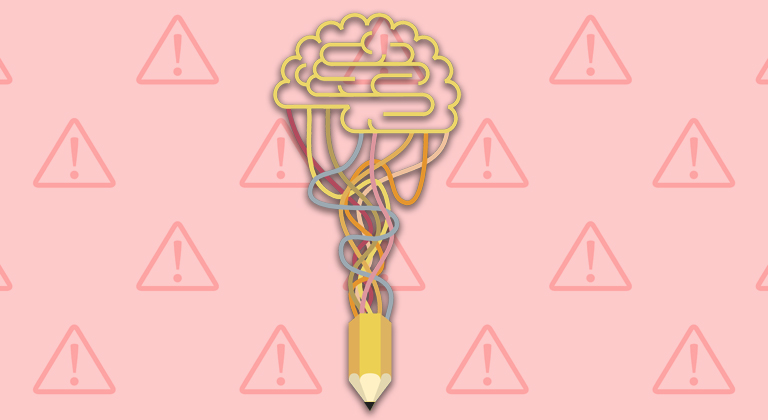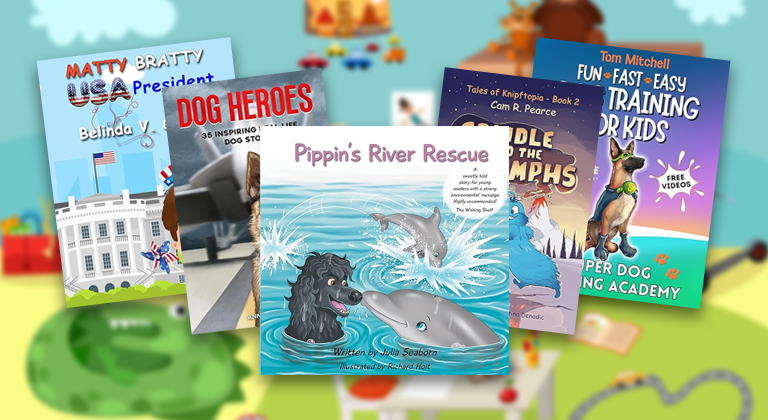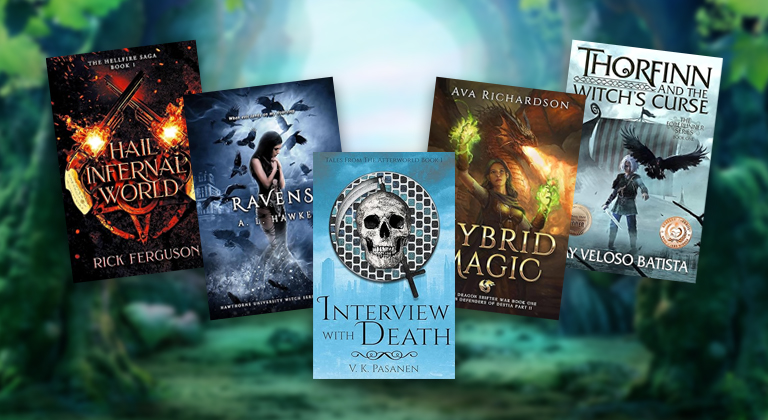Amazon Makes Huge Change to KDP Book Categories
If you’re a self-published author relying on Amazon’s Kindle Direct Publishing platform, you need to be aware of a recent change that can significantly impact your book’s visibility. The publishing giant has revised its category selection process, limiting authors to just three KDP book categories instead of the previous ten. While this simplifies the process and addresses abuse, it also raises concerns about your book getting lost among the vast sea of titles.
As Ginger describes in his analysis below, there are a variety of implications to these changes and potential ways you may be impacted. Authors that don’t take action soon may find their existing books recategorized automatically, and leaving something that crucial to an algorithm or poorly trained rep is unlikely to do your career any favors. By proactively fixing them yourself, you’ll ensure you are placed in the best categories possible for your book, leading to maximum discoverability and giving you the best chance of success.
In June, Amazon quietly rolled out a huge change to the way self-published authors choose and select the categories they want their books to be listed in.
Since its inception, Kindle Direct Publishing has allowed self-published authors to select two general categories for their books to appear in – largely the “big buckets” like romance, thriller, and suspense. These are categories described as BISAC categories (which stands for Book Industry Standards And Communications) and are the globally accepted categories used by booksellers worldwide to categorize their books.
Amazon, however, adopted a much more comprehensive list of KDP book categories, and for years have secretly let authors actually choose up to ten of these categories for their books to appear in – something of a “cheat code” which allowed clever writers the opportunity to pick and choose categories that were easier to score a high rank in. We’ve written a number of blog posts about that here.
This used to be one of the most powerful and effective ways to get your book noticed without having to spend a large amount of money on advertising. While it’s pretty difficult to get your book ranked in the Top 100 sellers for a BISAC category like Romance (around 3,000 sales in a single day) it was actually pretty achievable to get your book ranked in a more obscure Amazon-only category (like Asian Myth & Legend, which required just 210 daily sales to earn the coveted #1 Best Seller flair which would appear wherever your book was displayed.)
In fact, a whole industry practically popped up around this, with courses and tools designed to help authors figure out which KDP book categories were “hottest” and then a process for asking Amazon to add books to those particular categories.
Dave Chesson, founder of Kindlepreneur and creator of Publisher Rocket, is one of the most knowledgeable experts on the subject (we even interviewed him about it here) and in a recent email to his subscribers, he warned everyone about the new change which is neatly summed up by the line: “You now only get three chances to make an impact.”
What do these changes mean to you?
The first and most fundamental difference this is going to make for your self-publishing process is simplicity. Instead of selecting two BISAC categories and then having to email Amazon directly to get them to add or change up to 10 Amazon-specific categories, now you directly choose from those more extended KDP book categories right there on the KDP Dashboard, when you’re adding or editing your book details.
But simple doesn’t always mean better, does it?
The second difference is the more impactful one, and that is that you can now only be listed in three categories, as opposed to ten, and that fills a lot of us authors with concern that our books will disappear among all the millions of other titles on Amazon vying for ranking positions in those same categories.
However, that might not necessarily be a bad thing. Earlier, I mentioned above how a book in the Asian Myth & Legend category would only need 210 daily sales to earn a #1 spot – and score the coveted #1 Best Seller ribbon that revs up your Click-Through-Rate in advertising and marketing.
Until recently, the book that held that spot was none other than The Princess Bride, William Goldman’s iconic fantasy adventure that inspired not just a timeless movie starring Fred Savage and Peter Falk, but also a “family friendly” cut of Deadpool 2 called Once Upon a Deadpool that stared Fred Savage as well.
Great book. Great movies. But nothing to do with Asian Myth & Legend.
The downside of Amazon’s previous 10-category system is that a not-insignificant number of authors and publishers literally tried to “game” the system by selecting inappropriate categories for their books simply because they knew they’d be able to rank higher in those categories than the appropriate ones. With so many categories available, this was an unpoliceable system for Amazon and I believe preventing it is one of the main reasons for this new shift to three categories.
In fact, as part of this change, Amazon have even added a disclaimer to their Help topic on this subject which reads: “We reserve the right to change the categories of a book at any time to ensure a positive customer experience. The categories you add and the categories shown online may not always match. Your book may be added to additional or different categories to improve the customer experience.”
So, yes, while this change does make an impact to authors who’ve deliberately tried to maximize the number of categories their books are featured in, the ones who’ll be hurt by it most are going to be the authors who are using the category system disingenuously (and I won’t waste too many tears on them!)
I mean, it hurts other authors too – I loved having my books featured in specialist categories like Sea Adventures – but Amazon always chases after the best “customer experience” they can deliver, and the only safe and consistent way to “game” the system has always been to actually play the game the way Amazon intended (something we learned during the first iteration of Kindle Unlimited, and in the battle against “book stuffers.”)
What should authors do?
If you head to the Details page of any of your books in the KDP Dashboard, you’ll immediately see that the options for adding categories have changed. Your book might well have retained the two original categories that you selected, but now there’s a third one you can add – plus this message:
Categories update: You can now choose three categories that match Amazon store categories. If you make changes, all your existing categories will be removed and this action cannot be undone. Your new categories will not go into effect until you submit and publish your book.
Obviously, the first thing you can do is select that third category! The drop-down list you’re presented with includes all the regular BISAC categories as well as the KDP specific ones, and all you need to do is select a third one.
However, when you do so, it will take your book out of all the previous categories you’d selected beyond the original two. If you’ve spent the time adding up to eight additional categories, all that work will now be lost.
But before you complain, be aware that this will be happening regardless. Just today I checked the categories for the best selling book in my catalogue using Publisher Rocket and four of the categories I’d previously chosen had already been removed, with other authors reporting the same. It’s not likely to be long before only those three categories remain.
So, whether you take action or not, this will impact your books – and the advantage you have in taking action now is some control over that impact. If you just leave everything alone, Amazon will default your books into the two categories it thinks they belong in (and if you know anything about Amazon’s algorithms, you might know that these will probably not be the categories you want.)
So, it’s worth heading over to the KDP Dashboard and making these updates now. Hopefully this simplification will work in the favor of authors who focus on writing the best books they can; but like with everything else Amazon does, it might take some getting used to.
Conclusion
What do you make of these changes to Amazon’s category selection process? Do you think it will help or hurt self-published authors? Let us know in the comments section below – and don’t be afraid to share your real-life experiences with this change, so we can report on the actual impact in the near future!












I re-categorized two of my slower selling (but selling) titles into the new broad categories. Have not had a single sale of either books since. I am very reluctant to change my better selling titles.
So what’s the verdict?
For romance writers publishing romance now, if your book has an open-door sex scene, or foul language, have you checked the adult only content box and NOT gotten put in the dungeon?
And also horror or crime writers – if there’s violence that’s not appropriate for kids in your story, are you checking the adult only content box, and are your books staying out of the dungeon?
I’m hoping it will be a net positive. I chose my 3 categories, but Amazon ignored one of them and listed a Book (paperback) category in my eBook listing. They used the same one in my paperback listing but they have different rankings. I’m perplexed about that.
The number of authors who have been previously the system was not as large as this blog article or Amazon likes to believe. The was a great advantage to indie authors. That is now lost. This change will benefit no one but Amazon and Amazon only. Why? Because that list of or so-called specialty list of categories is nearly identical to all the OLD established TRADITIONAL categories that ever came to KDP. Meaning it’s narrow, the choices have shrunk and the effort for an indie author to reach that #1 best-seeller or even rank in the top one-hundred has practically evaporated. That’s what this article failed to mention. Yes, always deliver the bad news within a framework of effects. That’s the age-old psycho-babble. I happen to be tired of it, even though it’s still very much in use in work-places all over the globe.
Thank you for this info. I’ve been spinning my wheels a bit on this new change and have been unsure as to what to do about it. Another issue that I keep hearing about from the author community is the 18 and over check box which is another new rollout in this change. Apparently there has been talk that if you check the new box for explicit sexual content, which is a bit of a grey area when it comes to books (anything not closed-door and beyond kissing could be considered explicit sexual content) Amazon will automatically put you in the “erotica dungeon.” So I’m wondering if you have any info on this new rollout as well? And what the fallout will be for all of us romance writers?
As an author, I am fine with the change. At first, I was unsure but I’ve had no issues and I do see more positives than negatives. Some romance authors claim to have been mistakenly thrown in the dungeon or erotica and believe it’s because you have to tick the Adult box now but I believe these are small exceptions. Of course, the indie world has freaked like they always do and on social media have resorted to its usual fearmongering so when they hear of a few negative experiences, they jump to conclusions that this is happening to everyone and ends up spreading rumors to scare everybody.
From what I’ve seen, many of the authors who thought they were in the Amazon dungeon, were not. They just hadn’t given their books time to show up in searches after updates or uploading new books under the new system. Some might’ve had issues but I believe that’s more about their keywords and blurbs and not so much this new category system. And it is actually very difficult to be thrown in the dungeon where you are not searchable. You have to be writing some pretty far-out and risky stuff to be thrown in the dungeon, that’s why I don’t believe authors are really ending up there at a large rate. I think it was a handful of authors who got caught in some glitches, they were extra vocal and others ran with it. Again, this is what the indie community does. They cook up fear and spread misinformation before they even understand what’s going on. Some even blatenly making up stuff such as saying you can no longer have phrases in the keyword boxes on single words. Um… no. Where do they get stuff?
Anyway, the positives seem to outweigh the negatives. I have had no issues with this and not been thrown in the dungeon or anything. We have more control over our cats now and don’t have to ask Amazon to move us from cats we don’t belong in. A big plus is if you are wrongfully put in erotica, you can now change it yourself without having to ask Amazon.
I am glad they changed the 10 categories. I have seen many authors crying about this but you know what? It WAS NOT FAIR. Authors were getting extra cats under the table and getting their books to appear in all those places, getting all that visibility when most authors were stuck with just 2 categories. Many authors didn’t know that you could ask for extra categories first of all. This evens the playing field. Some authors should not have more cats than others, sorry. No. We all have the same amount now and it makes it easier for other authors who didn’t have the benefit of 10 cats to now chart and have visibility.
I don’t feel sorry for anyone bellyaching about the lack of extra cats, sorry. That was a privilege granted to a select few who knew a back-door channel that many authors didn’t know about. It allowed some authors to take up space in the WRONG categories as well as allowed a few authors to monopolize several Top 100 lists, therefore, taking spaces from other authors who might’ve been there who had the 2 cats (which you were supposed to have). I blame Amazon because they never should have been giving authors extra cats. If they wanted authors to have 10 cats, ALL of us should’ve had 10 cats.
Of course, authors who benefited from this back-door channel are going to be upset. A huge advantage and gaming of the system (yes, that is what it was even if Amazon allowed it) is now gone and these people who had been having their way with the Amazon store and having their books in millions of places no longer can. Now they are back with the other authors where they are supposed to be. Why some authors think they should have extra cats is beyond me. Indies always preach about fairness when it comes to indies and trade pubs, but when it comes to sticking it to fellow indies just so they can get ahead themselves, they don’t care about fairness.
Most authors LOVE that Amazon changed this because again, it was not fair. A few months back authors whined because Amazon changed it to where you could still be in 10 cats but only chart in three. And oh, did some authors make a fuss. Authors who had been riding this back-door channel and getting all these advantages and sucking up space on the Top 100 everywhere (even in places they didn’t belong) they had a fit. But every “good” thing comes to an end. This is why you don’t ever get too comfortable especially with Amazon and thinking that everything will stay the same. So I feel no sympathy for authors who are upset because they now have to play the same game as the rest of us who followed the rules. Sorry, not sorry. Most of us knew this was unfair and now others will get their chance in the spotlight.
I also think the new changes show authors that now more than ever they need to stop being so dependent on Amazon’s rankings, and algorithms. Even if you are in KU, Amazon has been moving away from organic placement and organic sales. They are trying to force people to buy ads with everything now. It’s obvious. Authors now need to focus on more ways to be seen OUTSIDE of the Amazon store and bringing readers to your books on there because the browsing feature that used to find us readers is dwindling and this cat thing might be another example of that.
But, I remain positive. What choice do we have? Why complain and get upset when we can’t change things, anyway? Some will like the new change and others will balk but that’s life. The truth is, this is Amazon’s store so they make the rules and we gotta accept them if we sell there.
Thanks for your feedback. I suppose you are right.. a lot of us indie authors do tend to catastrophize a bit. lol The three categories are not an issue for me either. I never jumped on that 10 category bandwagon, because it was more important to me to get my books seen by the right readers and not try to make some best seller list in some elusive genre… those best seller badges are transitory anyway and really say nothing on your books ability to sell long-term. I also noticed that you can’t really sell books without marketing them, so that does make the algorithm a bit pointless for a lot of us these days anyway. The only thing I’m worried about is the “erotica dungeon” but I think you managed to alleviate my fears a bit. So thank you. 💜
Thanks for this. I’ve been searching groups to figure out if we should proceed with changing categories or stay where we are as long as possible. Although, in reality, with the need to update pricing on paperbacks/hardbacks by 6/20, it seems there’s a deadline on the category issue for most of us anyway. When updating a book, the system asks about adult content and categories before allowing you to proceed to pricing adjustments.
I know you write steamy mc romance. What’s your take on the adult content option? Some say it’s dungeoned them while others say it hasn’t.